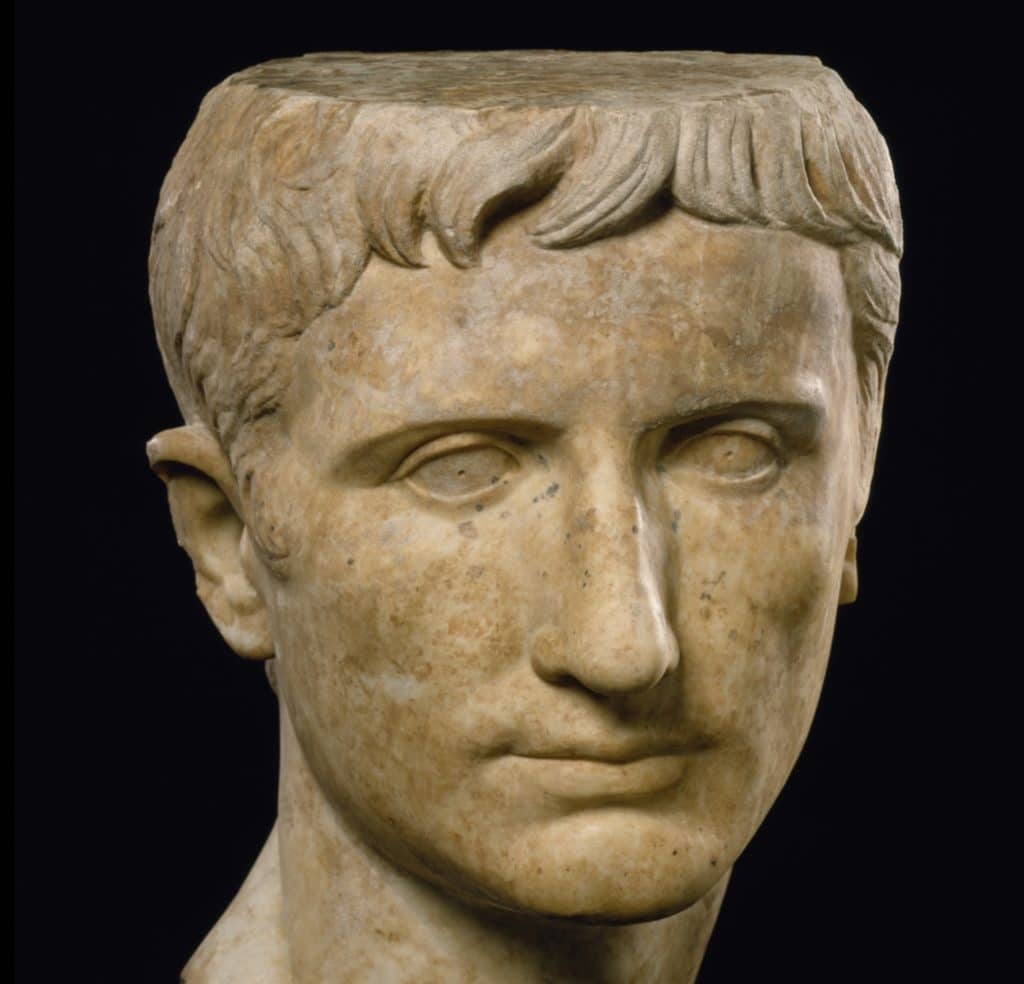
Augustus Caesar, originally known as Gaius Octavius Thurinus, was born on September 23, 63 BCE into a prominent Roman family. His great-uncle was Julius Caesar, the famous Roman general, and statesman. His father, also named Gaius Octavius, was a senator, and his mother, Atia, was the niece of Julius Caesar. After the assassination of Julius Caesar in 44 BCE, Augustus, then known as Octavian, was adopted by Caesar in his will, making him his heir. This set the stage for Octavian’s rise to power.
In 43 BCE, Octavian formed the Second Triumvirate with Mark Antony and Marcus Lepidus. They sought to avenge Julius Caesar’s murder and restore order to the Roman Republic. Together, they defeated the forces of Caesar’s assassins, notably Brutus and Cassius, at the Battle of Philippi in 42 BCE.
Over time, tensions grew between Octavian and Mark Antony. This rivalry culminated in the famous conflict between them (initiated in part by their mutual attraction to Cleopatra) at the Battle of Actium in 31 BCE, where Octavian emerged victorious. After the defeat of Antony and Cleopatra, Octavian became the uncontested ruler of Rome. In 27 BCE, he officially established the Roman Principate, a form of government that marked the beginning of the Roman Empire. He took the title “Augustus” in 27 BCE, which means “exalted” or “revered,” signifying his new status as the leader of Rome.
Augustus is credited with a range of important reforms and achievements during his rule, including the establishment of a stable government, the expansion of the Roman Empire through military campaigns, the implementation of various social and economic reforms, and a period of relative peace and prosperity known as the Pax Romana. Augustus ruled as emperor for 41 years, making him one of the longest-reigning Roman leaders. He died in 14 CE, and his stepson and adopted heir, Tiberius, succeeded him as emperor. Augustus’s reign is often seen as a pivotal period in Roman history, transitioning from the Roman Republic to the Roman Empire. His legacy is significant, and he is remembered as one of Rome’s most important and successful leaders.
Augustus Caesar’s impact on Roman history and governance cannot be overstated, as he played a key role in shaping the Roman Empire and its institutions. His rule set a precedent for subsequent emperors. Gaius Octavius Thurinus, died on August 19, 14 CE, Often considered the first Roman Emperor and the founder of the Roman Empire, his life and career had a profound impact on the course of Roman history and Western civilization.
